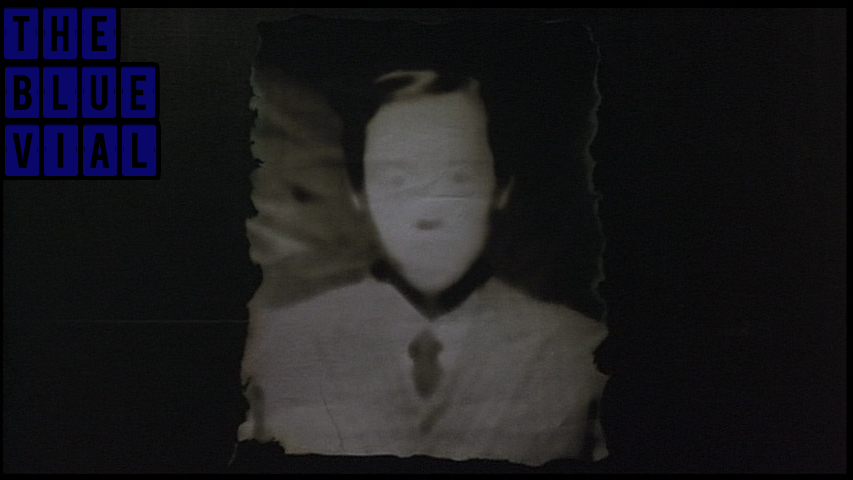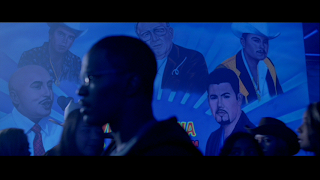
29 films in 7 weeks, spanning 45 years. One director. My plan to run through the essentials in the oeuvre of Jean-Luc Godard was something that had been brewing in my head for awhile. As I first talked about in my initial post Preparing For A Godard Marathon, I went through a large handful of the director's work awhile back, and though I was unquestionably intrigued by the films I was watching, I skipped around the years with little knowledge of how Godard had evolved as a filmmaker over the decades and the intimate ties between his cinema and his life, and was thus entirely befuddled and, quite frankly, put off by a few of these works that played as a kind of cinema I never knew existed, let alone had seen before. And so while I initially chalked the experience up as a kind of "Interesting filmmaker, but I'm not quite sure I 'get it' " type deal, I was never close to being satisfied. Does one really have to be an academic to appreciate this filmmaker? Can a regular guy who is just interested in interesting movies enjoy watching these films? These were the question that nagged me. And so this marathon was born.
So now that I'm done, now that I've watched a majority of Godard's essential films in order, what's the consensus? Well, in short: I've found the experience of watching these movies, and the experience of reading, discussing and thinking about them to be one of the most rewarding cinematic ventures I've ever partaken in. In my "Preparing..." post, I stated - in admittedly obscure terms - that my goal with the marathon was to "get a better handle" on Godard, and to "identify the shape of this man's body of work; something that would make sense of it all." I had a small epiphany around the midway point of the marathon where things clicked, and I realized what my real goal was; I wanted to simply learn how to watch a Godard film. An abstract notion yes, and one that I feel I'm still in the process of learning (and one that will continue as I revisit these film in the years ahead). But I certainly feel as though this marathon has given me a leg up. It is rare to come across a filmmaker such as Godard; one who so thoroughly challenges your preconceptions of what cinema is and can be on a consistent basis; one that, through even his most subversive works, is able to conjure up such beauty and stimulation as to render the final product something much closer to a piece of glorious art than merely a "film". The fact that Godard's work over the years remained so resoundingly personal was perhaps the biggest revelation for me, and it's another fascinating aspect that makes his body of work one of the most singularly unique and compelling in all of cinema.
So needless to say, I deem this marathon a grand success. At the very least, it's given me a fair amount of insight into a director who remained enigmatic and impenetrable to me for a long time, and it's also given me a large handful of rich, exciting cinematic works to revisit and scrape more from for years to come. My original intention was to do this on my own, without blogging about it at all. I finally decided that it would be neat to keep a record of my initial reactions and thoughts on these films for future reference, and so while the write-ups were often sloppy and done in a hasty manner, I like to think that they at least accurately reflect my raw impressions. Getting comments in the comments section was one of the funner aspects throughout all of this for me. In particular, Ed Howard from Only The Cinema, who helped me comprise the list of titles for the marathon, provided commentary throughout that was just awesome; insightful, intelligent and full of tidbits. Erich Kuersten from Acidemic always had kind words and gave me a plug over at his great site, which was really cool. Doniphon, another frequent commenter, is in the early stages of going through the films of Jean-Pierre Melville (another filmmaker I am sadly lacking in) at his wonderful site The Long Voyage Home, and I will enjoy keeping up with that. And I implore everyone to check in with Jake at Not Just Movies, who's been conducting his own run through of Godard's films (his project predates mine), and the intelligence and thorough analysis he brings to his breakdown of these films has never failed to amaze me.
At first I thought it would be fun, once I was all finished, to rank the films from the marathon. Then I figured that these rankings are always kind of goofy and arbitrary, and it'd be a little silly for me to rank all these films on mostly just first impressions after driving home the fact that they are, for the most part, incredibly dense and no doubt command repeat viewings. Then I said, ah what the hell, someone might find it interesting. So here it is, my rankings of all 29 films I watched during this marathon, warts and all, and obviously open to constant revision as I continue to revisit them in the future:
1. Contempt (1963)
2. Pierrot le fou (1965)
3. Passion (1982)
4. Two or Three Things I Know About Her (1966)
5. Nouvelle vague (1990)
6. Week End (1967)
7. Notre Musique (2004)
8. A Married Woman (1964)
9. La Chinoise (1967)
10. Masculin, feminin (1966)
11. Hail Mary (1985)
12. Made in U.S.A. (1966)
13. First Name: Carmen (1983)
14. Vladimir and Rosa (1970)
15. Vivre sa vie (1962)
16. JLG/JLG, autoportrait de decembre(1995)
17. Helas pour moi (1993)
18. Numero deux (1975)
19. Breathless (1960)
20. King Lear (1987)
21. Alphaville (1965)
22. Anticipation (1967)
23. A Woman Is A Woman (1961)
24. Band of Outsiders (1964)
25. In Praise of Love (2001)
26. Le Gai Savoir (1968)
27. Tout va bien (1972)
28. A Letter to Jane (1972)
29. Detective (1985)




















































































